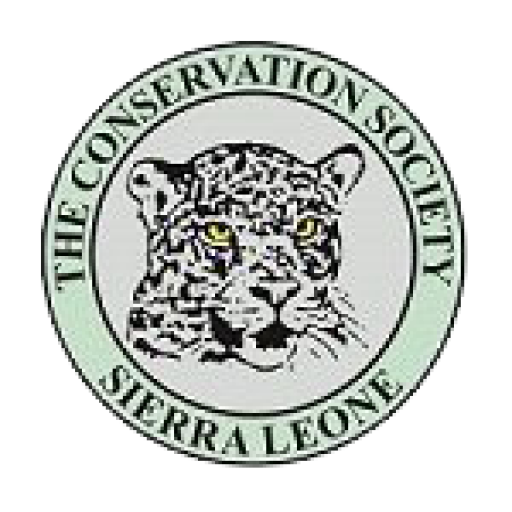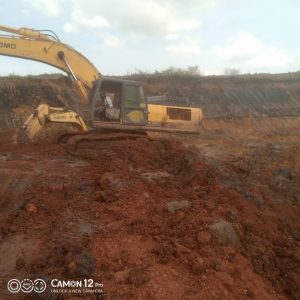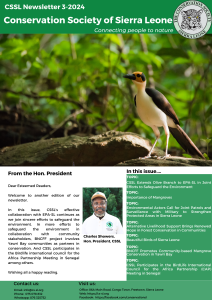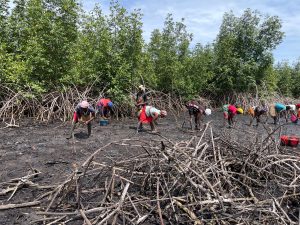CSSL takes the lead in the national KBA Programme
The Key Biodiversity Area (KBA) Programme was founded by some of the best-known international organisations when it comes to environment and nature. Organisations like World Wildlife Fund (WWF), BirdLife International, International Union for Conservation and Nature (IUCN) and Critical Ecosystem Partnership Fund (CEPF) – just to name some of them – are part of this programme.
The KBA Programme has the vision to establish an international network and a global database about KBAs around the globe. The aim of this network and the international cooperation is the conservation and protection of species on a global level because every species plays an important role in the balance of ecosystems and the survival of mankind. To get more information about the KBA programme, visit www.keybiodiversityareas.org
What is biodiversity and why does it matter?
Biodiversity is all the different kinds of life you’ll find in one area—the variety of animals, plants, fungi, and even microorganisms like bacteria that make up our natural world. Each of these species and organisms works together in ecosystems, like an intricate web, to maintain balance and support life. Biodiversity supports everything in nature that we need to survive: food, clean water, medicine, and shelter.
World Wildlife Fund (WWF)
Sierra Leone is well known for its high degree of biodiversity. The country`s rainforests as well as the coastal areas have a very high density when it comes to flora and fauna. To ensure the protection and conservation of key biodiversity areas and its biodiversity in the country, the Conservation Society of Sierra Leone has taken the lead in establishing a Sierra Leone KBA National Coordination Working Group with professional from diverse fields. This group will coordinate experts, other national initiatives, data collection, the KBA review process, and review of external proposals, in order to identify, document and delineate the most robust network of KBAs in Sierra Leone.
Moving forward on the way to identify and recognise Sierra Leones Key Biodiversity Areas
In March 2022, CSSL conducted a three-day workshop with support from the Royal Society for the Protection of Birds (RSPB) to train key stakeholders on how to identify and recognise Sierra Leone’s KBAs and on which steps have to be undertaken to get the KBAs recognised on the international level. During this workshop, a KBA National Coordination Group (NCG) was established. It is the responsibility of this group to carry the process forward. To make sure the process will be successful CSSL involves key stakeholders with different backgrounds. There are representatives from government institutions like NPAA as well as other local environmental organisations such as RAP-SL, international organisations such as CRS and representatives with scientific background.
Taking the lead to preserve Sierra Leone's biodiversity
The Conservation Society of Sierra Leone, the oldest environmental organisation in the country is taking the lead in this process. On the 23rd of August 2022, CSSL organised a follow-up meeting to establish a technical committee, review of draft ToR for the NCG and identify potential donors that will potentially support KBA initiatives in Sierra Leone. “We know about the amazing biodiversity we have in our country,” said Edward Sessay, CSSL Programme Manager, in his opening statement. “What we have to do now is to establish a committee and follow all the steps to first identify the KBAs in Sierra Leone and then get them recognised on the international level.”
The workshop was participatory as stakeholders from diverse institutions including relevant MDAs, CSOs/NGOs, and INGOs were in attendance and made meaningful contributions. Dr. Okonie Williams, the Technical Lead for the workshop and a Head of Department, Biological Sciences, Fourah Bay College, University of Sierra Leone emphasised in his closing remarks: “Biodiversity is the answer to climate change. Diversity in species will give as the resilience we need to face the consequences of climate change we are experiencing today.”
With a successful outcomes of the workshop, stakeholders resolved that a voluntary NCG membeship meeting would be held to validate the Terms of reference that will guide the operations of the SL-KBA NCG.



